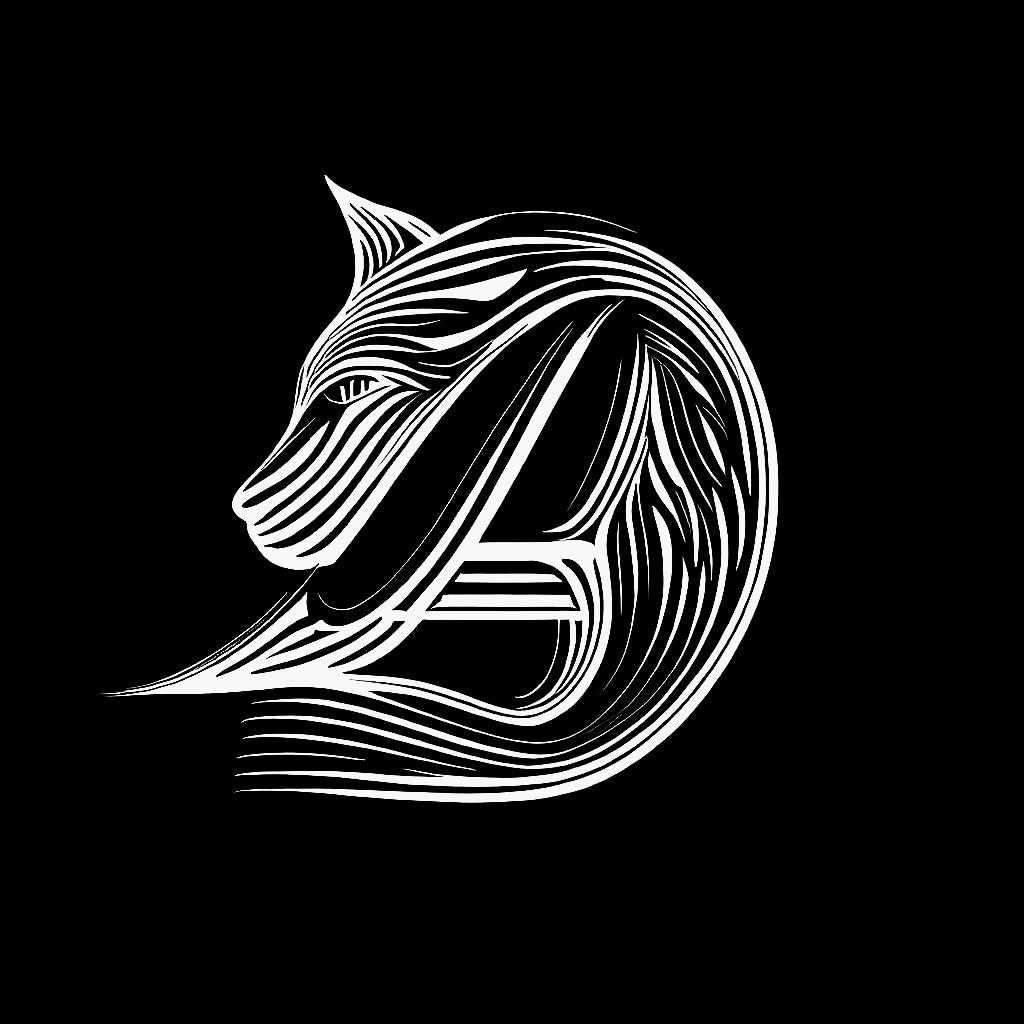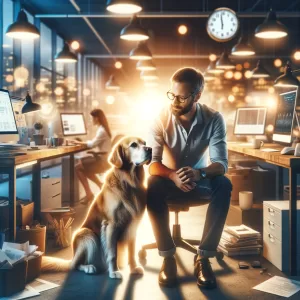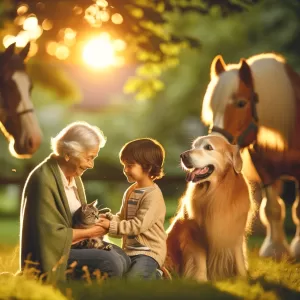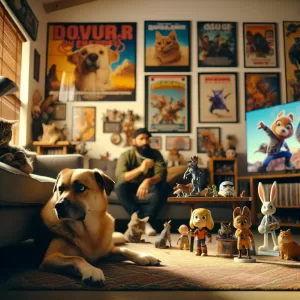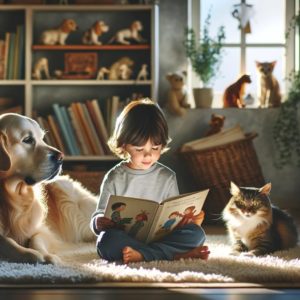There’s a silent conversation that happens between a human and a pet. This conversation transcends languages, geographical boundaries, and even time. As humans, we’ve shared a unique bond with our animal counterparts for thousands of years, a bond that has influenced our culture in ways more profound than we often realize. In this narrative journey, we’ll uncover how pets have shaped, inspired, and steered human cultures throughout history, and in turn, how they’ve sculpted the world as we know it.
Chapter 3: Pets as Parchment: Bearing the Mark of Human Art and Literature
Art and literature have long served as mirrors to society, reflecting our thoughts, emotions, values, and even our relationships with the world around us. Amidst this cultural tapestry, pets have held a significant place, providing a recurring motif and rich context for creativity and expression. From the rudimentary strokes of prehistoric cave art to the intricate narratives of modern literature, pets have etched themselves onto the canvas of human culture.
The Primitive Pictographs: Pets in Prehistoric Cave Art
As early as 40,000 years ago, our ancestors found a way to immortalize their connection with animals. Using natural pigments, they depicted scenes of hunting, rituals, and daily life on the walls of their caves, capturing the raw essence of their relationship with animals. Dogs, horses, and birds prominently featured in these artistic expressions, reflecting their central role in early human societies.
In France’s Chauvet Cave, a beautiful panel called the “Panel of the Lions” reveals a pride of lions hunting bison, a testament to the reverence early humans had for the natural world. Other caves feature drawings of dogs participating in hunts, suggesting their importance as partners in survival.
The Classical Canvases: Pets in Art and Mythology
As civilizations developed and artistic techniques evolved, pets continued to inspire artists, serving as subjects and symbols in their works. Egyptian frescoes portray cats sitting beneath chairs or at the feet of pharaohs, reflecting their status as sacred animals. Greek vases depict scenes of dogs in various roles, from faithful companions to fearsome mythical creatures.
Medieval and Renaissance art further cemented the presence of pets in cultural expressions. Dogs symbolized fidelity, cats represented sensuality, and birds, often depicted in flight, symbolized the human aspiration for freedom and spiritual growth.
Literary Pawprints: Pets in Literature
Literature, like art, has been a fertile ground for exploring the human-pet relationship. Fables and folk tales across cultures feature pets as main characters, imparting moral lessons and societal values. Aesop’s Fables, for example, often utilize animals like dogs, cats, and birds to convey messages about loyalty, cunning, and wisdom.
In more modern literature, pets are portrayed as faithful companions, sources of comfort, or catalysts for character development. Think of Buck in Jack London’s “The Call of the Wild” or Toto in “The Wizard of Oz”. Pets in literature serve as vehicles for exploring themes of loyalty, courage, and the struggles of existence, thereby expanding our emotional landscape and empathetic understanding.
The Digital Paintbrush: Pets in Modern Art
In today’s digital age, the canvas has shifted from cave walls and parchment to computer screens, but the inspiration drawn from pets remains undiminished. Pets feature prominently in digital art and animation, capturing the imagination of a global audience. They continue to be symbols of innocence, joy, and unfiltered emotion.
Online platforms brim with art dedicated to pets, from whimsical caricatures to lifelike portraits. Pets are the stars of countless internet memes, their antics providing laughter and comfort to millions. They’ve even made their way into the world of virtual and augmented reality, offering new avenues to explore our enduring bond with them.
An Enduring Muse
Whether etched onto the stone walls of a prehistoric cave or crafted into a modern novel, pets’ influence on human creativity is profound and enduring. They have served as muses, guiding our artistic hand and literary voice across millennia. Their impact transcends aesthetic appeal, shaping our emotional understanding and cultural narratives. In rendering pets onto parchment, canvas, or digital screens, we’ve not only preserved their essence but also the essence of our shared journey.
